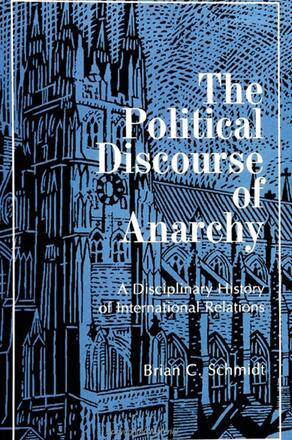
The Political Discourse of Anarchy
A Disciplinary History of International Relations
Alternative formats available from:
A disciplinary history of the field of international relations from its emergence in the mid-1800s until the outbreak of World War II.
Description
CHOICE 1998 Outstanding Academic Books
This detailed disciplinary history of the field of international relations examines its early emergence in the mid-nineteenth century to the period beginning with the outbreak of World War II. It demonstrates that many of the commonly held assumptions about the field's early history are incorrect, such as the presumed dichotomy between idealist and realist periods. By showing how the concepts of sovereignty and anarchy have served as the core constituent principles throughout the history of the discipline, and how earlier discourse is relevant to the contemporary study of war and peace, international security, international organization, international governance, and international law, the book contributes significantly to current debates about the identity of the international relations field and political science more generally.
Brian C. Schmidt is Assistant Professor of International Relations at the State University of New York at New Paltz. Prior to that, he was Visiting Assistant Professor in the Department of Political Science at the University at Albany, State University of New York.
Reviews
"This is a well written and very interesting book that, in my view, will have a considerable impact on the field of international relations. The author provides what he promises at the outset--a disciplinary history. The book offers an important caution about how scholars should and should not utilize history and makes a strong case that one's interpretation of international relations theory is a thoroughly political business. It could not be more timely and is precisely the sort of tonic we need as international relations moves into a postpositivist era and as we reopen debate on many of the core concerns with which the book deals. The author tells an interesting story that most of us need to learn. I was genuinely riveted. " -- Richard W. Mansbach, Iowa State University
"This book fills a massive hole in the literature. It also confirms a widely held but largely intuitive suspicion that the early history of international relations theory has been severely distorted. International relations has been one of the most curiously ahistorical of modern academic disciplines, and Schmidt goes a long way toward restoring some historical perspective on contemporary struggles to construct a plausible global politics. " -- R. B. J. Walker, University of Victoria
"The most appealing aspect of The Political Discourse of Anarchy is the author's compelling critique of the discipline's founding myths. To convincingly show that the anarchy/sovereignty problematic was a central question from the 1880s onwards, predating the so-called 'birth' of the discipline by four decades, and to reveal the deep discursive continuities between 'idealism' and 'realism,' represents a massively important contribution. This should be compulsory reading for all final year undergraduates, postgraduates, and members of the international relations profession. " -- Tim Dunne, University of Wales